7 must-see skateboard movies
From a naturalistic classic to a fascinating documentary, Vogue presents a non-exhaustive selection of must-see films about skateboarding.
MARTHE MABILLEAugust 1, 2024
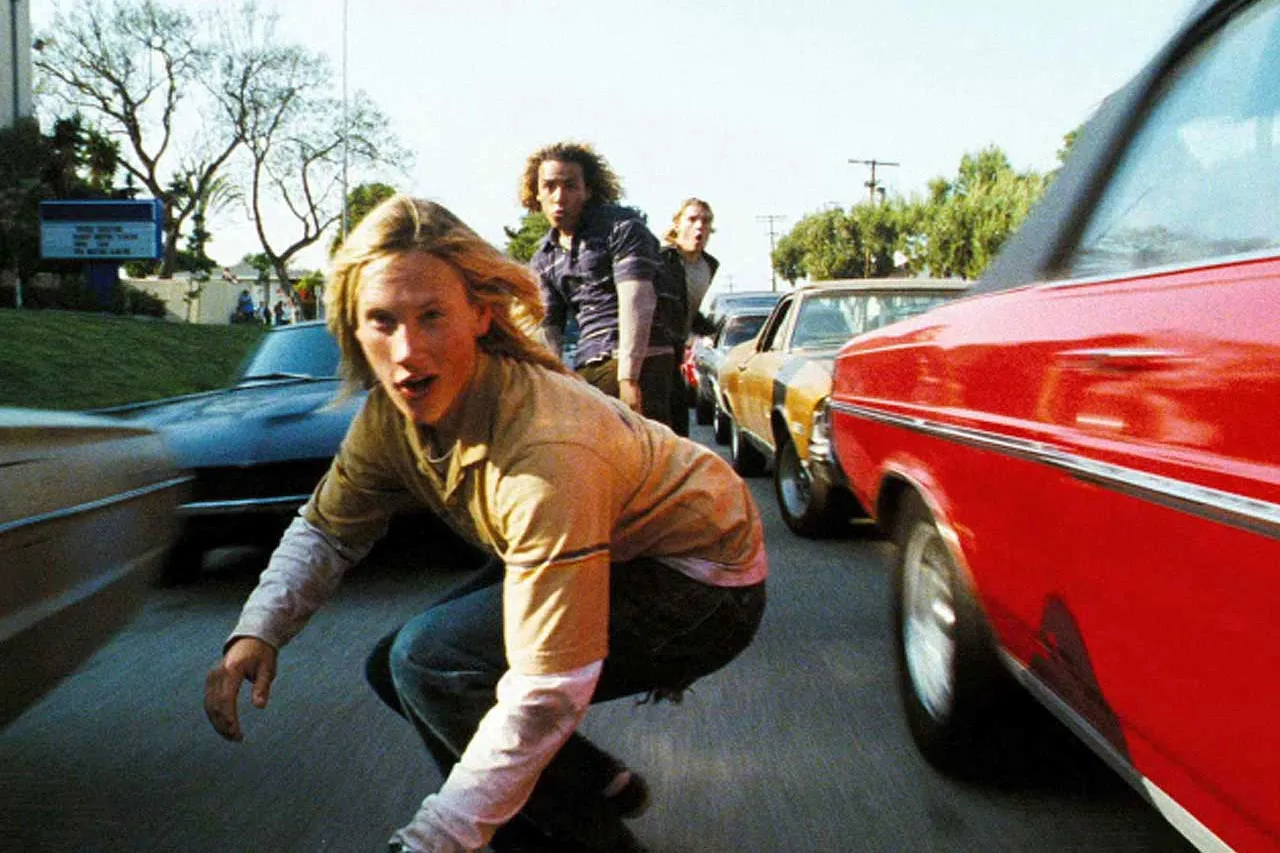

From a naturalistic classic to a fascinating documentary, Vogue presents a non-exhaustive selection of must-see films about skateboarding.
MARTHE MABILLEAugust 1, 2024
Skateboarding films inspire many filmmakers who want to capture this unique approach to life, as they reflect a thirst for freedom that is immense, yet often thwarted. In the final analysis, skateboarding is much more than a sport: it’s a lifestyle straight out of California (in the USA, skateboarding culture originated mainly in the slums of Venice), a vocation with a rebellious streak, a remedy for loneliness. Like surfing, skateboarding has a singular relationship with the world and its territories. Captured through the camera of the filmmaker, these urban spaces reveal an unsuspected potential and beauty for those unaccustomed to observing them. Fortunately, cinema is here to help…
Directed by famously realistic filmmaker Larry Clark (Kids, Bully, Ken Park), the drama Wassup Rockers captures the days and nights of a group of seven Latin American teenagers (amateur actors they met on the street), punk fans living in disadvantaged South Los Angeles. To escape the misery of their daily lives, they decide to practice their sport in Beverly Hills. There, they hook up with young girls from wealthy families, and their presence quickly becomes a stark contrast to the local scene. An intimate portrait of skateboarding culture that’s hard to miss.
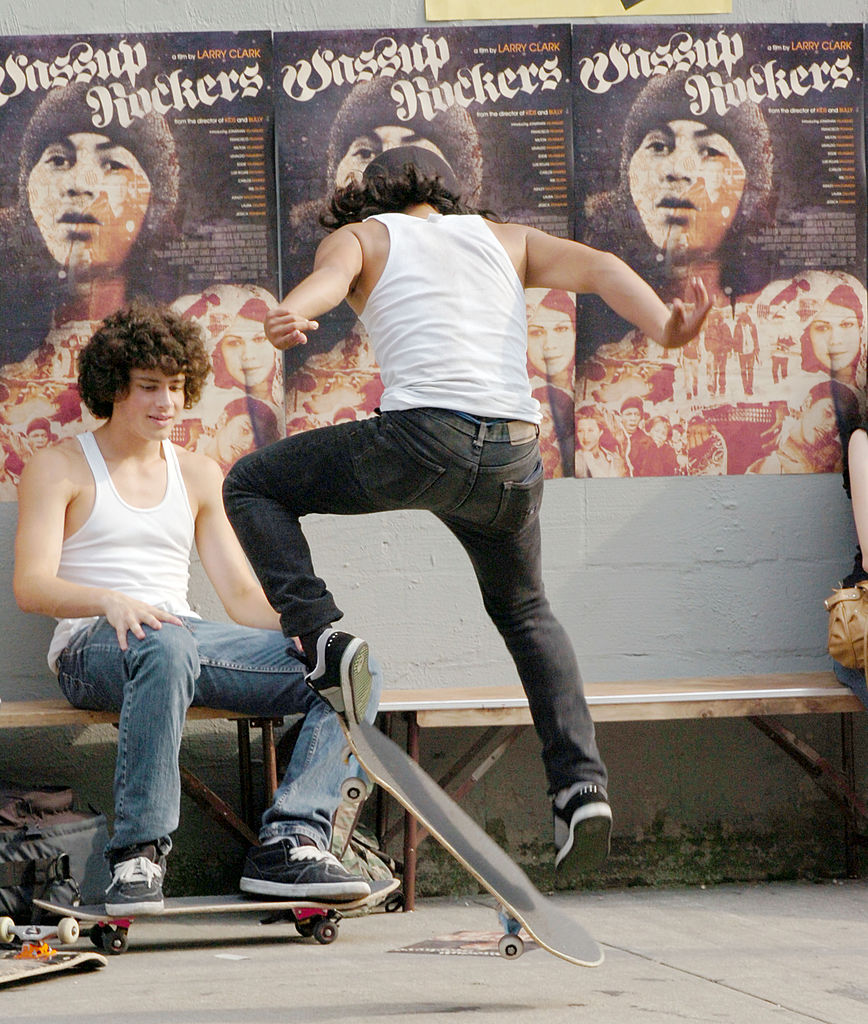
Photo: Getty Images
In the summer of 1975, the streets of Dogtown, California, are the territory of a group of young people who, for the first time, transpose the movements of surfing onto concrete. It’s a hot summer, and the empty pools of Venice Beach are transformed into a playground for this new way of gliding. Before long, the Z-Boys – or the Zephyr Competition team, as this group of skaters liked to be called – were making a name for themselves with their spectacular tricks. And everyone wanted them: the world of sport, the first marketing agencies to spring up, the girls…
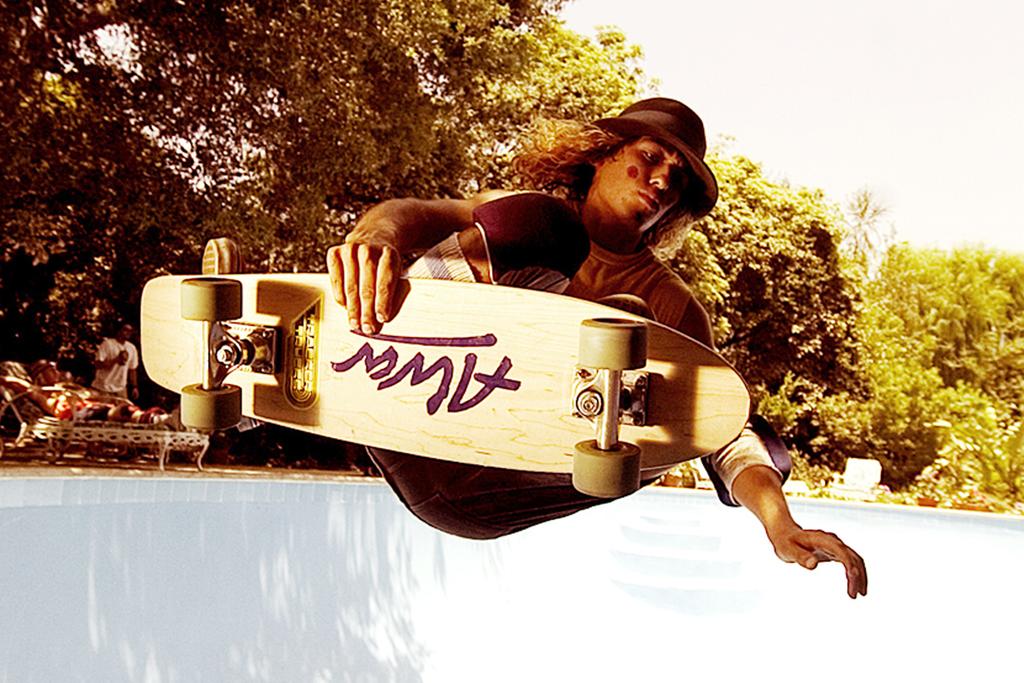
The Lords of Dogtown by Catherine Hardwicke (2005) © Tristar Pictures
Alex, an introverted teenager from Oregon, is particularly gifted at urban sliding. The young skateboarder makes a habit of visiting Portland’s most notorious skatepark, Paranoid Park. One night, he accidentally kills a security guard nearby. Distraught, Alex decides not to say anything. He takes refuge in silence and lies… Adapted from Blake Nelson ‘s novel by naturalist filmmaker Gus Van Sant, who wrote the script in just two days, this Franco-American drama unfolds a disturbing, not to say haunting, story, sublimated by breathtaking landscapes.
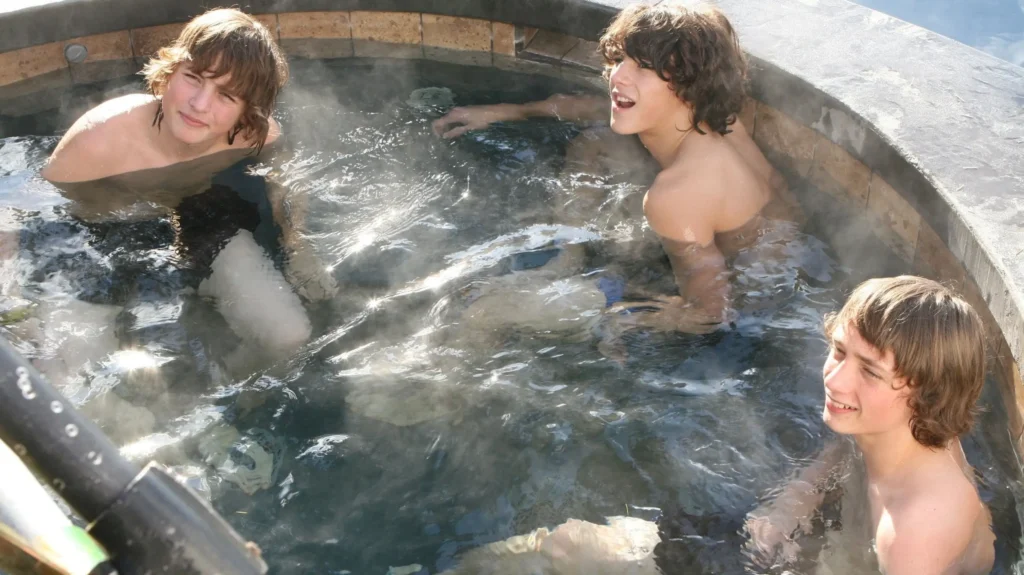
Paranoid Park by Gus Van Sant (2007) © IFC Films
Camille, 18, spends her time skateboarding, much to the chagrin of her mother, who considers the sport far too dangerous. Determined to indulge her passion, the teenager meets the girls of the Skate Kitchen who, like her, love to crisscross the streets of New York on their boards and aren’t afraid to make their mark in a very masculine environment. Alongside them, Camille discovers the power of friendship. Revealed by her first feature film The Wolfpack in 2015, Californian director, producer and screenwriter Crystal Moselle signs an ode to sisterhood, imbued with a certain urban poetry. Two years later, she adapted her film into a TV series, Betty.
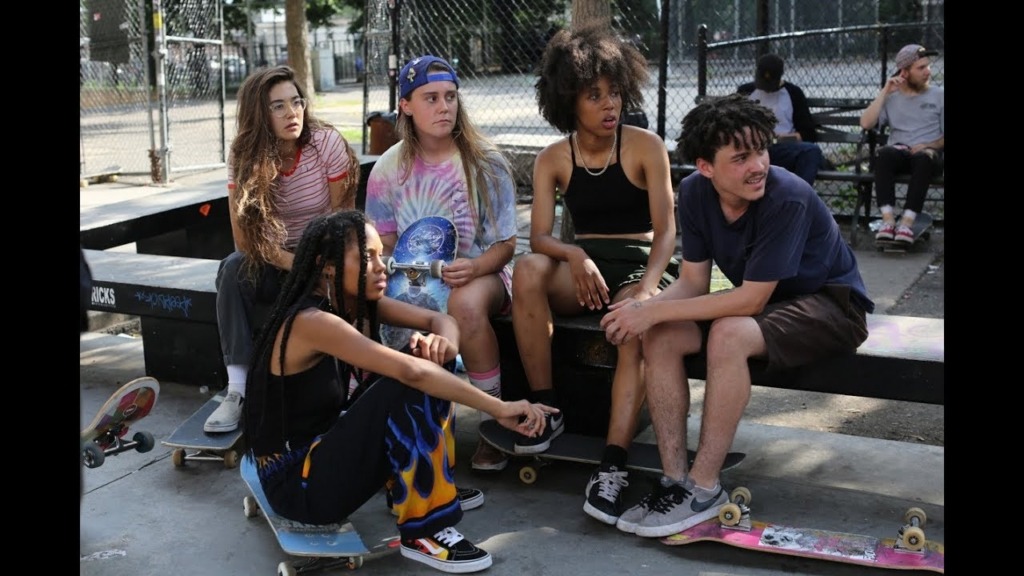
Skate Kitchen (2018) ©The Years Of Living Dangerously
Filmed over nearly 12 years, this documentary follows the trajectory of three terribly endearing young people, Bing, Zack and Keire, who live in the heart of America’s Rust Belt. In this region, the future is often synonymous with uncertainty and poverty, if not addiction and violence. But the three friends find an escape in skateboarding. One of them, Bing Liu, films all their adventures in Rockford, Illinois, and shows the complexity of entering adulthood, dealing with their often dysfunctional families, while appropriating the codes of modern masculinity. The gaps implied in the film’s title are more psychological and traumatic than physical. Skateboarding becomes a symbolic tool for learning about oneself and one’s freedom.
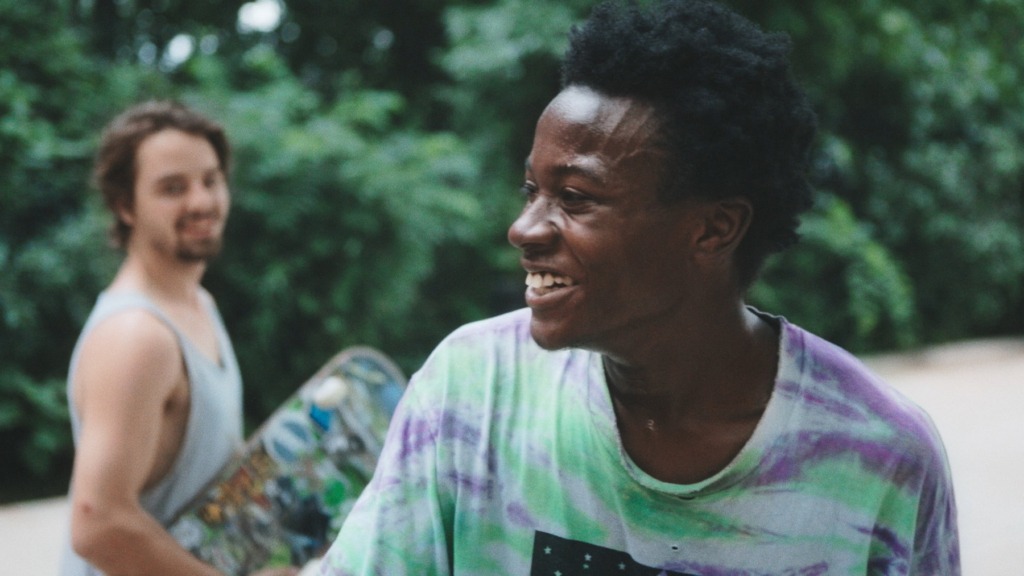
Minding the Gap by Bing Liu (2018) © Magnolia Pictures
A summer in the mid-90s, in a working-class suburb of Los Angeles. Stevie, 13, is an awkward, shy boy with a passion for skateboarding. But skateboarding is much more than a board; it’s a way for him to enjoy the outside world while escaping the violence of home. During one of his escapades, the teenager meets four older skateboarders who take him under their wing. From then on, Stevie’s summer was one of firsts, transgressions and the discovery of a new freedom. Skateboarding became as much a vehicle for a cool attitude as for the desire to break free. Inspired by his own story, actor Jonah Hill ‘s directorial debut is a teen movie teen movie.
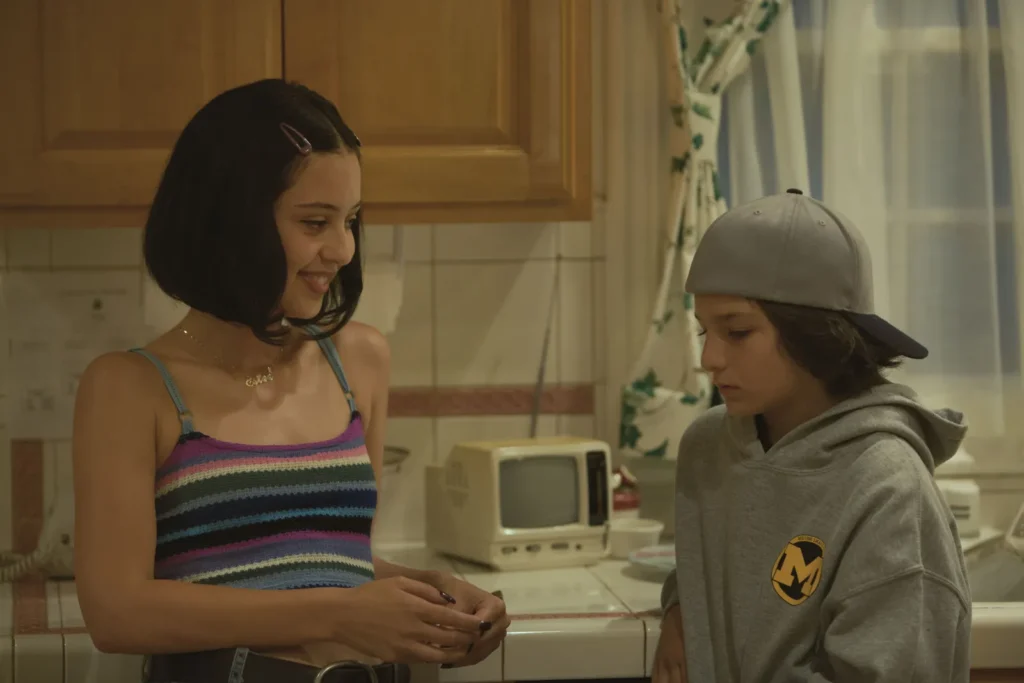
90’s by Jonah Hill (2018) © A24
A raw, immersive documentary co-produced by Netflix, Question of Balance: Skateboarding according to Leo Baker follows the skateboarding star in the run-up to the 2020 Olympics: his journey through the extremely gendered world of sport, the difficulty of coming-out, how others view the transition, online harassment, his physical and mental health… The athlete recounts: The main thing is to become a role model for people who can identify with my story. I wasn’t a girl who was a ‘tomboy’. I’ve always been a man, and if I’d been lucky enough to have a role model who looked like me from puberty I could have saved myself a lot of suffering.
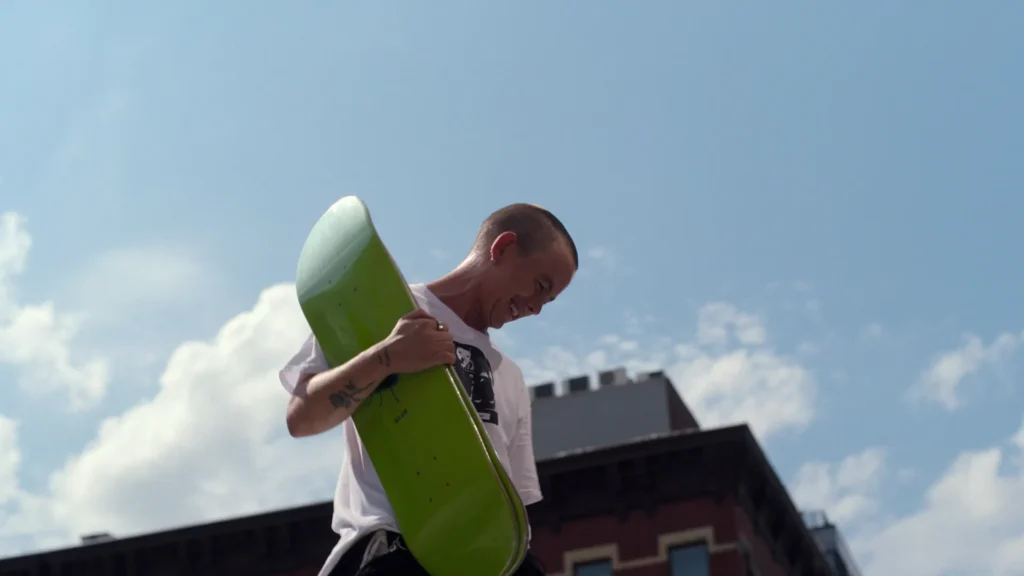
Stay on Board: The Leo Baker Story by Nicola Marsh and Giovanni Reda (2022) © Netflix